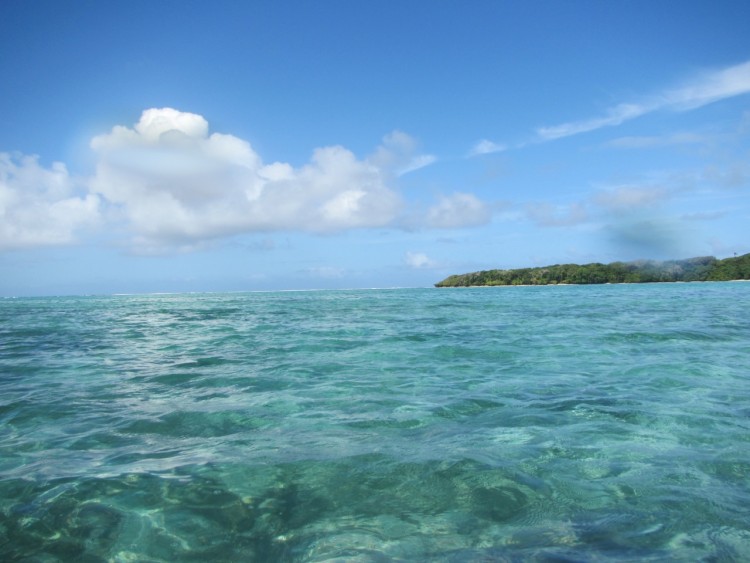This post is part of a series on the 2015 United Nations Climate Change Conference (COP21) held in Paris, France, from 30 November to 12 December 2015.
“Right up here you’ll see the point they landed on.” I’m walking along a karst limestone ridge covered in luxurious vegetative growth. I’m in the village of Nagigi on the island of Vanua Levu in the Republic of Fiji, and my guide, Masivesi Madigibuli, is taking me to see the point of first landing for his people. As we walk, Masi points out a hidden cartography of the island. The undulations in the karst ridge are actually the foundations of former structures, and as we get on our hands and knees, we see giant shells—clam, snail, oyster—all dwarfing their modern relatives.

Masi, our host and our friend, is keenly aware of the history of his people and is a passionate advocate for protecting both the customs and the environment that helped form who he is. I am here because I am leading a collaborative research team from Columbia University to understand past reef ecosystems and hopefully to provide the people of Nagigi and the Fijian government with information to help them come up with ways to ensure that ecosystem survives into the future. Masi is teaching me about how to read the signs to understand the vivid splendor of the reefs in the 1800s as well as the history of a village whose citizens depend on the health of that reef to survive.
Like many people in the South Pacific, the villagers of Nagigi have long held the practice of marine tenure, which means that they hold claim to the reef and the resources thereupon. Those resources are the communal property of the village to be allocated and managed as a matter of internal affairs. The reef has sustained them from the days of first landing, and today they are aware of how the populations of species on the reef are declining. As such, the village government has decided to establish a marine reserve for three years to help rebuild those resources. As a conservation biologist, I am here to study how such short-term reserves impact the ecology of the reef.
The act of setting aside land or sea for management is one that can be viewed through a conservation lens, but perhaps more importantly it is an act of political agency as expressed through resource conservation. By collectively managing these reefs, the villagers are, in effect, reinforcing their traditional (and legal) claims over the resources, and reasserting that a village of 250 people has the ability and sovereignty to establish collective action. For multiple generations, going beyond the first landing, this has been the right and the way of indigenous Fijians, yet today that right is being threatened.
For generations the scale of resource threats and the scales of resource management were linked in Fiji. This is not to paint a picture of no environmental impact or degradation (organisms did go extinct both locally and globally); there were (and continue to be) active management of natural resources at the village scale. Establishing no-take areas could regulate localized overfishing. Collectively deciding where and what crops to plant could help control siltation and loss of topsoil. Yet with climate change occurring, the Fijians are facing a threat that eclipses their capacity for local management and therefore undermines centuries of political agency.
Global conversations about the impact of climate change have justifiably focused on species extinction and climate mediated diaspora, yet in Nagigi we can see that climate change is threatening centuries of political agency of indigenous people, forcing them to enter into conversations and power structures, which may devalue and disenfranchise their way of life. And while this piece frames this situation in the context of a small Fijian village, we all bear responsibility for the hundreds of thousands of individuals whose civil and legal rights are being eroded through our collective inability or unwillingness to address climate change.
Joshua Drew is a faculty member in Columbia University’s department of Ecology, Evolution, and Environmental Biology where he studies the ecology, evolution, and conservation of coral reefs, and directs the MA in Ecology, Evolution, and Conservation Biology.
Cite as: Drew, Joshua. 2015. “Climate Change and Disenfranchisement: A View from Fiji.” EnviroSociety. 18 December. www.enviroscoiety.org/2015/12/climate-change-and-disenfranchisement-a-view-from-fiji.